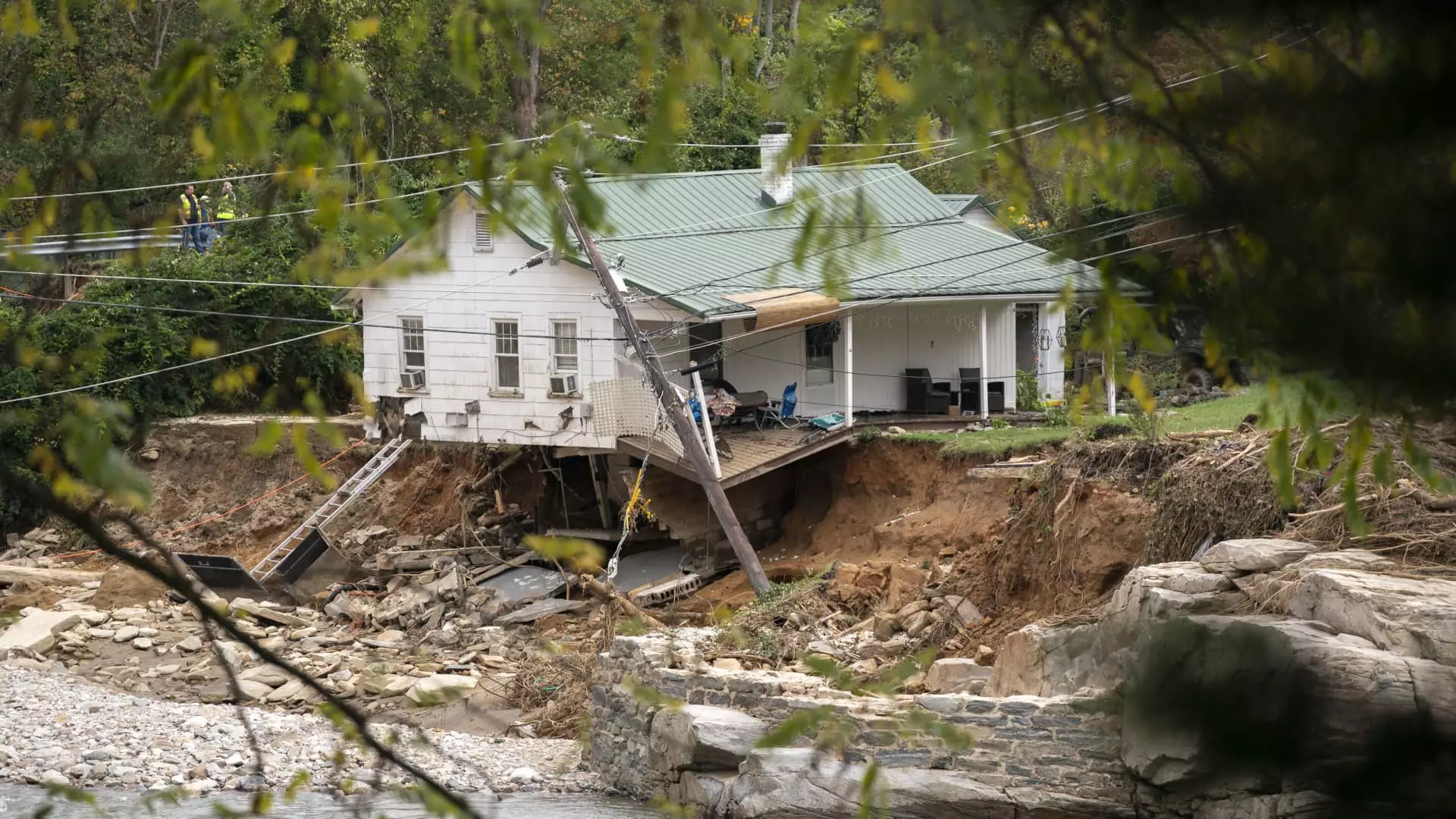The repercussions of climate change are increasingly evident, with Hurricane Helene serving as a stark reminder of the vulnerabilities that many homeowners face. The estimated insured losses from the hurricane have topped $6 billion, with much larger figures still uncalculated due to the widespread lack of flood insurance, particularly in regions like North Carolina. In light of this and similar disasters, innovative risk-assessment technologies are poised to transform the landscape of home buying and insurance.
In North Carolina, a significant number of homeowners lack flood insurance primarily because their properties do not fall within designated flood zones as determined by the Federal Emergency Management Agency (FEMA). It is ironic that only 4% of homes in the state are classified within these boundaries while climate risk assessments suggest that nearly 12% of properties actually face potential flood threats. Such discrepancies highlight a critical misunderstanding about the nature of flood risks—many homeowners believe that being outside FEMA-designated areas provides them with a safety net, which is fundamentally flawed.
Ed Kearns, Chief Science Officer at First Street, aptly points out that heavy rainfall can impact a far broader area than FEMA maps indicate. As climate patterns change and extreme weather events become more common, it is crucial for consumers to reassess their understanding of risk distribution. The limitations of traditional flood zone maps can no longer dictate insurance needs or expectations.
In response to this gap in awareness, First Street has introduced an advanced suite of climate risk data, now available on real estate platforms like Zillow. This data integrates not only current risk assessments but also projected changes over 15 and 30-year horizons—the typical duration of fixed-rate mortgages. As the climate crisis continues to progress, these insights will likely become essential for informed decision-making in property purchases.
Homebuyers are increasingly conscious of climate risks; a Zillow survey indicates that over 80% now consider such factors when shopping for homes. Flood risk, specifically, has emerged as the primary concern among prospective buyers. This shift in priorities has implications not only for individual homeowners but also for the real estate market as a whole.
The introduction of climate risk scores into property listings is anticipated to significantly alter the dynamics of home values. For instance, listings are now tagged with scores for various types of hazards, including flooding and wildfires. As new data emerges indicating a growing number of homes at significant risk, the influence of this information on buyer behavior will undoubtedly escalate.
The Zillow analysis conducted on August listings reveals troubling trends: an increase in properties with major climate risks compared to five years ago. Presently, 16.7% of listings face severe wildfire threats, and 12.8% are at an elevated flood risk—numbers that indicate a surge in properties that might become increasingly difficult to insure or that may face depreciation in value.
As insurance costs rise alongside the necessity for such coverage, homes in high-risk areas may see marked declines in value due to the financial burdens that prospective buyers will encounter. The crux of the situation lies in the direct correlation between quantifiable risk and real estate valuation, creating a feedback loop that is critical to monitor.
It is evident that the integration of advanced climate risk data into real estate listings represents a significant leap towards empowering consumers to make informed decisions. This shift is not just about individual preparedness; it reflects a broader societal acknowledgment of the pressing issues related to climate change. As consumers gain access to detailed and accurate risk information, they become better equipped to assess their needs for flood insurance and understand potential future challenges.
Ultimately, the real estate industry must adapt to these evolving realities. As climate risks continue to shape market dynamics, both buyers and sellers alike will need to engage in informed discussions about insurance, home values, and long-term implications. The transformation prompted by the convergence of technology and climate knowledge marks the beginning of a new era in home buying, signifying not just a change in strategy but a cultural shift in how we view property ownership in the context of environmental responsibility.

